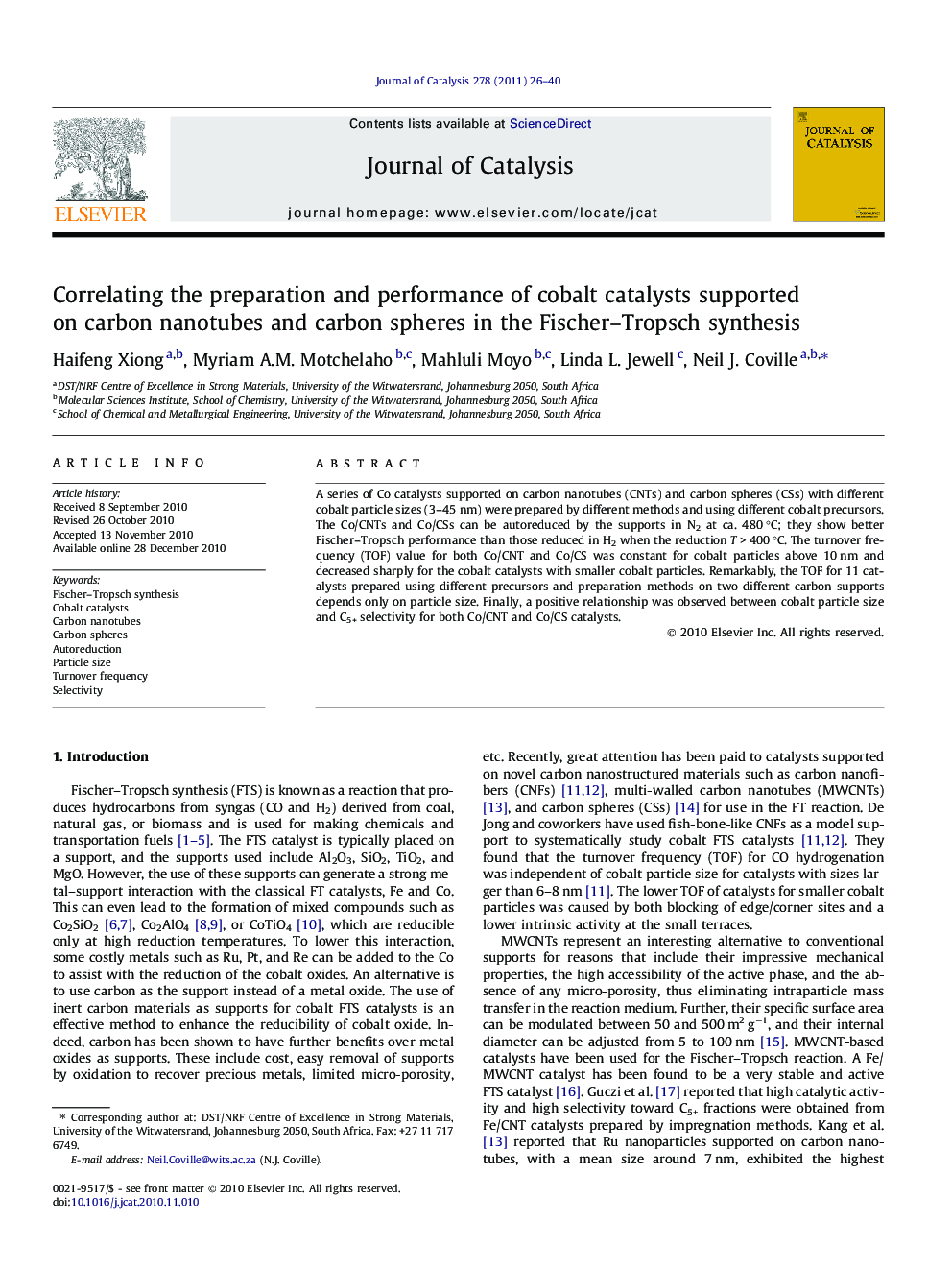| Article ID | Journal | Published Year | Pages | File Type |
|---|---|---|---|---|
| 61906 | Journal of Catalysis | 2011 | 15 Pages |
A series of Co catalysts supported on carbon nanotubes (CNTs) and carbon spheres (CSs) with different cobalt particle sizes (3–45 nm) were prepared by different methods and using different cobalt precursors. The Co/CNTs and Co/CSs can be autoreduced by the supports in N2 at ca. 480 °C; they show better Fischer–Tropsch performance than those reduced in H2 when the reduction T > 400 °C. The turnover frequency (TOF) value for both Co/CNT and Co/CS was constant for cobalt particles above 10 nm and decreased sharply for the cobalt catalysts with smaller cobalt particles. Remarkably, the TOF for 11 catalysts prepared using different precursors and preparation methods on two different carbon supports depends only on particle size. Finally, a positive relationship was observed between cobalt particle size and C5+ selectivity for both Co/CNT and Co/CS catalysts.
Graphical abstractCarbon nanotubes (CNTs) and carbon spheres (CSs) were used to load cobalt with different cobalt particle sizes for use in FTS. The similarities and differences between Co/CNT and Co/CS were investigated.Figure optionsDownload full-size imageDownload high-quality image (102 K)Download as PowerPoint slideResearch highlights► Carbon nanotubes (CNTs) and carbon spheres (CSs) were synthesized by the CVD the method. ► Co/CNT and Co/CS catalysts were prepared by changing preparation method and precursor. ► The catalysts (cobalt particle sizes: 3–45 nm) were tested in Fischer–Tropsch synthesis. ► The autoreduction for both Co/CNT and Co/CS has been observed. ► The relationship between TOF and cobalt particle size has been investigated.
